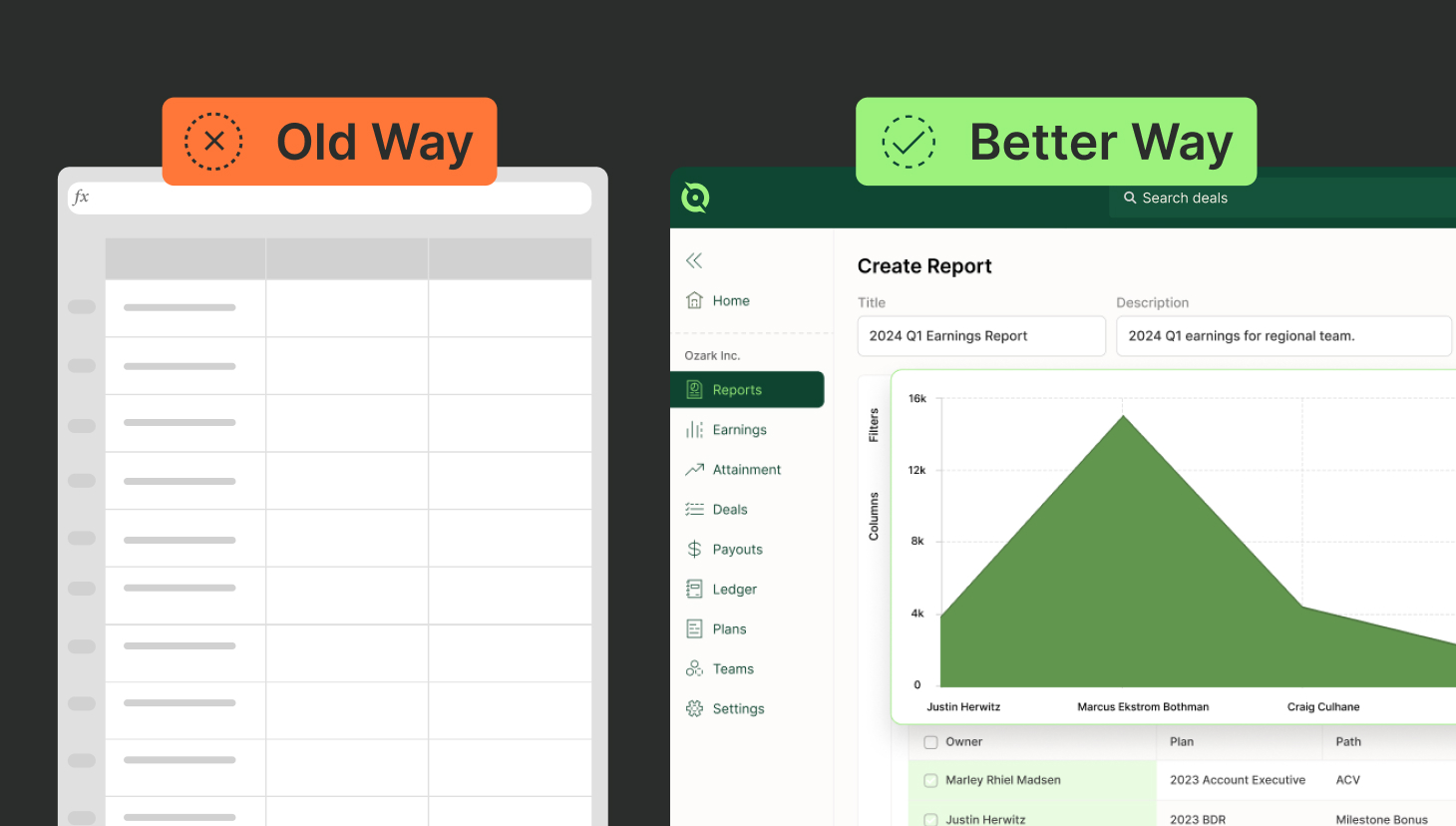Sales team members are among the “most stressed” workers in the corporate world, according to a 2021 survey. This results in a continuous strain on their mental health.
Sales Health Alliance and UNCrushed, two organizations dedicated to improving sales mental health, collected responses from 770 participants for the survey. They found that more than 40 percent of salespeople reported struggling with their mental health. The data also indicated a correlation between mental health and hitting sales targets. Meaning, the worse the sales reps felt the further they were from achieving quota.
“Sales can be pretty cutthroat,” said UNCrushed CEO and Co-founder Tim Clarke. “There’s this added pressure of hitting your number on top of looking after yourself, family, and loved ones.”
Try QuotaPath for free
Try the most collaborative solution to manage, track and payout variable compensation. Calculate commissions and pay your team accurately, and on time.
Start TrialClarke would know.
The senior marketing director at Salesforce spent seven lucrative, stress-filled years in sales before transitioning to marketing. During this time, Clarke’s father died suddenly in 2013. Grappling with how to process his grief, Clarke went down a dangerous, drug-fueled path.
“The expectation in the corporate workplace is that when you lose someone, you take a few days off for bereavement. Then you’re meant to come back feeling fine,” Clarke said.
“I got sober that year.”
Tim Clarke
But upon returning to work, Clarke wasn’t fine. He turned to anything he thought would help him feel better, including drugs and alcohol. Four years and an overdose later, Clarke recognized that he needed professional help and sobriety.
Now, he wants to share his experience, and that includes at the office.
As part of his ongoing recovery journey, Clake has committed to bringing his full, authentic self to work. He hopes to inspire others to be more honest and open about their personal lives and encourage work environments to create safe spaces for such discussions.
“Individuals want to work for an employer that allows them to speak openly about themselves and their challenges,” Clarke said. “In 2017, I thought I was the only person experiencing my problems. If someone had told me that they had also gone through something similar, I probably would’ve gotten help sooner.”
Fostering an open environment that values employee wellbeing is especially relevant today when one in five adults has reported experiencing a mental illness. Furthermore, burnout has reached an all-time high, with nearly 80 percent of US workers reporting concerns over their mental health.
As the “War on Talent” lives on, and job seekers continue to gravitate toward sales organizations that prioritize mental health, Clarke shared what leaders can do to best support their teams.
Q&A with Tim Clarke
What are some immediate changes sales leaders can adopt to impact mental health?
Clarke: Everyone can work on their listening skills. Sometimes people don’t spot the warning signs that someone is struggling, such as showing up late to meetings or inconsistencies in their work. People want to be seen, and they want to be heard. I encourage leaders to ask “Are you okay?” not once — but twice. This gives that person time to go a little deeper because it’s very easy to just say everything is okay when it’s not.
The traffic light system is also a great way to start a one-on-one or team meeting by asking where they’re at right now through the colors of a traffic light. Their responses of red, amber, or green will give you a sense of how each person is feeling.
Lastly, leading with vulnerability creates a space for others to be vulnerable. When I share my story with someone at work and they resonate with it, it builds a personal connection between us. Then we can navigate our challenges together.
What can sales reps do to prioritize their mental health?
Establish boundaries. With so many of us working from home, everything blurs into one, and it becomes difficult to have separation. I block out a full hour for lunch every day on my calendar. I’ll still take meetings during this time, but it’s my choice when I do.
At the company level, what should organizations be thinking about as it pertains to mental health?
Companies think that providing mental health benefits is the answer, but it’s only part of it. So many organizations that offer employee assistance programs discover that their employees don’t feel comfortable using them out of fear of leadership finding out.
It really comes down to understanding what your employees want and need. Is it a week when the entire company shuts down so employees can recharge? Is it no-meeting Fridays or employee resource groups? It could be a variety of things, so the first step is to listen, learn the problems, and understand what they want.
How can sales professionals who are struggling with their mental health leverage UNCrushed for help?
In three years, we’ve curated 150 personal stories that cover the whole spectrum of mental illness, such as addiction, grief, and trauma. Each one is tagged so that our readers can easily locate topics pertaining to their own experiences. We make sure that every story includes solutions. Additionally, we have free online mental health screenings available and a detailed resources page. We want to help people move from the darkness to the light.



